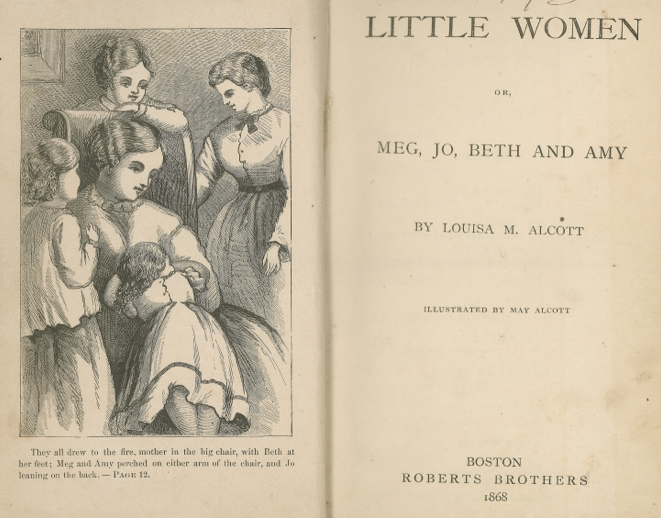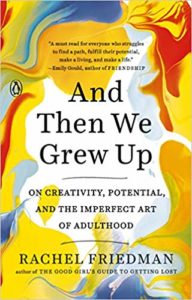
I Thought I Was Jo: Revisiting “Little Women.”
Gerwig’s lens dwells lovingly on the whimsical costumes, productions, scribbles of the young March sisters. Even in hard-up circumstances, they can imagine themselves as actresses, writers, musicians and artists as well as soldiers and pirates—they can be free. Watching them romp in their attic, I thought about the horizons of modern childhood: raiding the closet to put on a play, nailing a solo, writing a poem, all these simple acts of creation that adults tell us will herald a life of glory.
But who achieves that kind of glory? For those of us who were “Jo” girls, the film’s gentle treatment of the protagonist’s little sister and rival Amy has offered something shocking: sympathy and understanding (at least this is what I’ve observed on social media). When, in the film, Amy stands in a Paris art salon and declares that she’s of middling talent and will have to marry well and live a more ordinary life, very few of us over the age of 25 can’t relate.
 Rachel Friedman, a writer and former viola player, devoted an entire book to unpacking choices like Amy’s. And Then We Grew Up: On Creativity, Potential and the Imperfect Art of Adulthood, investigates the crooked paths taken by formerly “creative kids,” her campmates at the famed Interlochen Arts Camp. Unable to lay aside her regret along with the viola she mastered as a child and quit in college, Friedman travels around the country to interview her fellow former child prodigies and artistic hopefuls who have become everything from successful musicians to Pilates instructors to screenwriters and nonprofit salary-drawers. She finds that most are living fulfilling lives, creative in some ways and sensible in others. Many retain regrets, but have learned to live with them as a wary friend.
Rachel Friedman, a writer and former viola player, devoted an entire book to unpacking choices like Amy’s. And Then We Grew Up: On Creativity, Potential and the Imperfect Art of Adulthood, investigates the crooked paths taken by formerly “creative kids,” her campmates at the famed Interlochen Arts Camp. Unable to lay aside her regret along with the viola she mastered as a child and quit in college, Friedman travels around the country to interview her fellow former child prodigies and artistic hopefuls who have become everything from successful musicians to Pilates instructors to screenwriters and nonprofit salary-drawers. She finds that most are living fulfilling lives, creative in some ways and sensible in others. Many retain regrets, but have learned to live with them as a wary friend.
It turns out, Friedman writes, that accepting one’s longing for the road not taken—for the life of singular devotion to a dream that Jo extols in Little Women—is, for many of us, what it means to grow up. But so is finding a good comfortable pace on the other road, the one you’re already on. Whether that involves prioritizing your family or an income or creative freedom or a little bit of each, our choices inevitably limit us. And yet we make those choices, more often than not, based on what matters to us, what we need. Even as we curtail our lives, we carve out a space for ourselves too.
Racing through Friedman’s wisdom-spouting book the very same week as I saw “Little Women,” the season of New Years’ resolutions and promises of self-fulfillment, I expected to be beset by regrets, envy, and longing. I spent a lot of my twenties worrying that I was wasting my mythical potential, letting down the Jo-like girl I was. I tried to keep all the doors of “potential” from closing, but they closed anyway (they do that). And somewhere along the way I learned to live with it.
And so, here is this new “Little Women,” striking a new chord with the grown-ups who loved it as a child. Where I once sympathized solely with Jo’s rebellion and ambition, I now see in myself other characters: Marmee’s hard-earned patience, Meg’s suppressed but persistent vanity, Amy’s pragmatic self-assessment, even the doomed Beth’s fatalism and Laurie’s occasional bouts of…being an entitled jerk.
When Meg explains to Jo that she no longer wants to run away to be an actress, because she wants to make a home, I was surprised to identify with that, too (I really didn’t like Meg back in the day), with the sweetness in her renunciation. And yes, I still see myself in Jo, but in a fuller way, including the moments she is forced into radical humility, to accept watching her little sister step into her cherished dream of a trip to Europe, and come home married to her childhood best friend. These plot twists no longer feel unnecessarily cruel. They just feel like life.
Everyone thinks they’re Jo, but even she isn’t the same Jo in the end. Yes, the film’s ambiguous ending leaves open the question of whether she finds love or focuses on her art. But its final scenes on the campus of Plumfield, Jo’s school (an arts camp of its time, perhaps?) nod to Alcott’s sequels. Alcott’s Jo ends up with a hybrid life much like many of Friedman’s old campmates have found: teaching, writing, parenting, being knit into a community, continually learning forbearance.
Neither a tidy marriage plot nor a suffering-for-art manifesto, hers is a happy-enough ending that intertwines art, caregiving and doing good in the world. It’s enough to make me revisit my New Year’s resolutions and tell myself: yes, aspire to be like Jo, but in the end, not the beginning.
3 comments on “I Thought I Was Jo: Revisiting “Little Women.””
Comments are closed.




Oh gosh, this is so lovely and so resonant. Thank you!
I loved this new movie, and this is a great synopsis of how may (probably) of us feel!